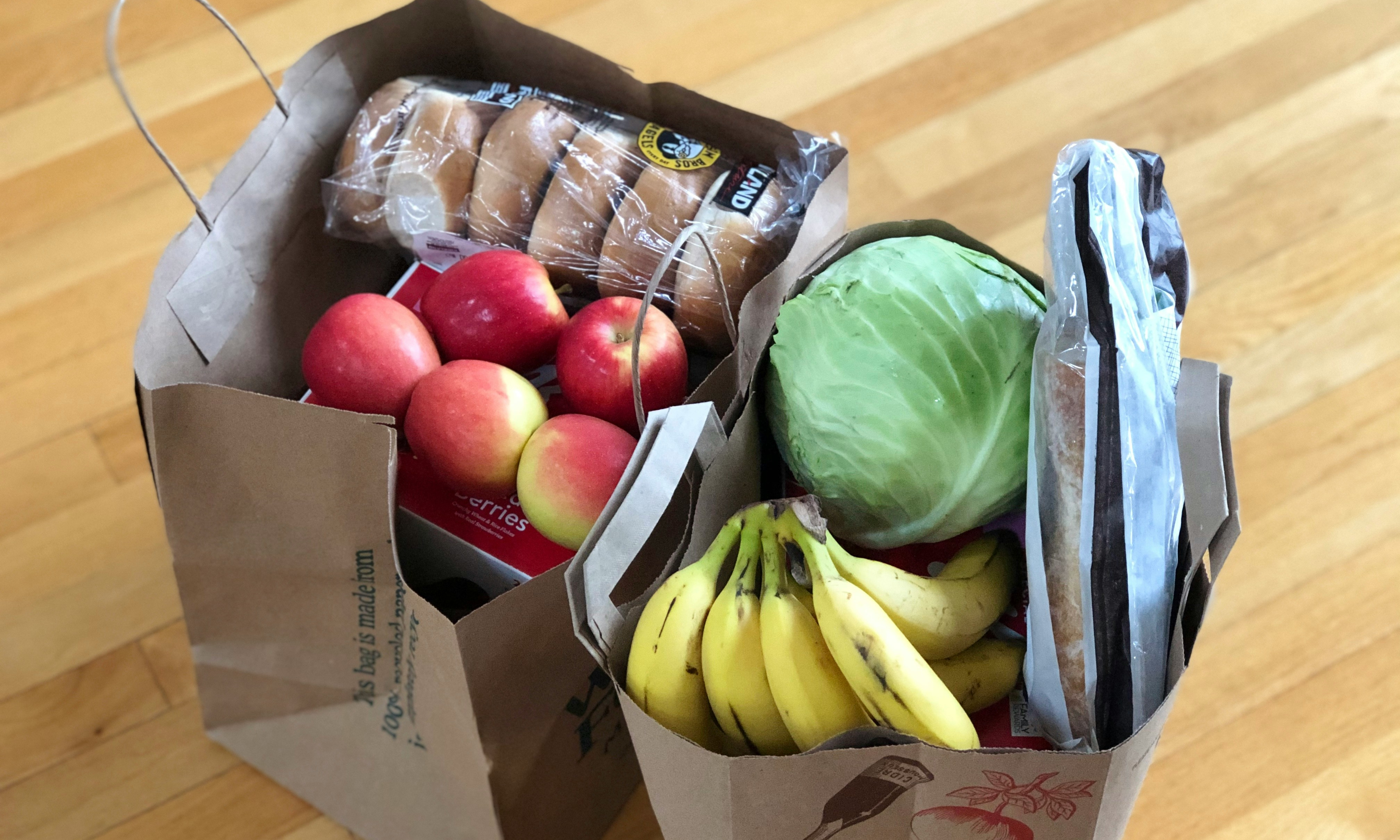The Baker
Miria was the first street seller to step foot in the palace since it had been built thousands of years before. And she didn’t even want to go there.
Miria wasn’t anyone particularly special by most people’s standards. She was the wife of a poor factory worker in the capital. They had one little son, and they lived in a single-room apartment near the factory. They struggled to make enough to live on, but both Miria and her husband were hard workers, and they had never gone a day without eating at all.
To help make some money, Miria baked bread and sold it on the side of the street next to their apartment building. Miria’s bread was very good, but so was the bread of the many thousands of other bakers in the city. On some days, there could be more than a dozen bakers within a few blocks of their building, selling their bread to passersby.
Miria was well-known, however, within her own neighborhood, for being very generous with her bread. Whenever one of the poor children had nothing to eat at home, they knew that they could always get at least a few scraps of bread from Miria. When one of the old grandmothers grew sick and couldn’t work for several months, it was Miria who would come by at the end of the day to bring her food.
It was on a typical autumn day that this story begins. Miria had risen early to start the dough for her bread for the day. This was a Saturday, and there would probably be extra people in the streets. She measured out extra flour into her giant mixing bowl. She moved quickly, for she wanted to get as much done as possible before her son woke up.
By sunrise, everything was ready for baking. If she wanted to be ready in time for the breakfast rush, she would need to head out now.
Miria picked up her baby, who was still sleeping, and tied him in a towel to her back, where he would spend most of the day.
She walked down the winding staircase of her apartment and stepped into the common storage area by the main entrance. There, near the back of the room, was her oven-cart, where she baked and sold her bread.
There were several others in the storage room, preparing for a long day of work. Miria maneuvered her cart out of the jumble of other items in the storage room and steeped outside into the cool morning air.
She pulled the cart over to her usual spot and began to set up. She pulled out a bag of coal from the storage compartment. There was still enough for a few more days’ work before she would need to buy more. She placed the coal at the bottom of the oven and lit it with a match. Next, she began to shape the last of yesterday’s dough into loaves. She had kept some so that she wouldn’t have to wait for her new batch to rise before she could get started baking.
Soon, Miria pulled the first few loaves out of the oven and set them out for people to buy. The smell of the bread brought quite a few people over to her cart. Most of them were probably on their way to work, and they had planned on stopping by for their breakfast. Within minutes, the first batch had sold out, and the next few were already on their way. Early morning, when the air was still chilly and everyone was hungry, was always the best time to sell.
While Miria was waiting for the next loaves of bread, some new customers walked up to the cart. They were soldiers.
“We want some bread. And make it quick,” said one of them.
“It will be ready soon,” replied Miria.
The soldier scowled, but there wasn’t anything he could do about it. The other soldiers seemed to be restless.
He tapped his finger on Miria’s cart. “They’d better be ready soon,” he said. “We need to get going.”
Miria looked inside the oven. “Very soon,” she replied. It was still half-raw, but she knew better than to argue with the soldiers. They didn’t usually act very nicely when contradicted.
When Miria finally pulled the bread out of the oven, the soldiers were nearly furious from their impatience.
“These will cost you twenty each,” she said.
The soldiers laughed and walked away. “You’ve already cost us enough of our time,” they replied.
Miria tried to stay calm. Even though she was certain they had the money to pay and her family needed that money badly, she knew it would only cause more trouble if she tried to protest.
If that had only happened once, Miria would have soon forgotten the incident. However, the next morning, the soldiers returned, just as impatient as they had been the day before. And from then on, they came every day, taking food without paying. This troubled Miria and her husband. They could afford to share a little of their food, but they preferred to give it to those who had none, not these cruel soldiers.
Finally, they decided that Miria would bring her complaint before a judge. The next day, instead of setting up her cart as always, she stood in line outside of the court. Even though she had arrived early, there were already many people in front of her. By the time she finally was let inside to see the judge, everyone inside seemed tired.
“What do you want?” asked the judge.
“My name is Miria,” she began. “I am a baker, and I sell bread on the side of the street. Every morning, a group of soldiers comes by and takes bread from me without paying.”
The judge frowned. “You’re not the only one who has complained of this,” he said “But I have a quarrel with the commander of their garrison. There’s nothing I can do to help you.”
And with that, he motioned for her to leave.
“But sir, don’t you understand,” she said.
“I said there’s nothing I can do,” he interrupted. “I would if I could.”
Miria turned around and slowly began to walk out of the court. As she walked through the door, the gatekeeper stopped her.
“Excuse me,” he said. “Did you say that you are a baker?”
Miria nodded. “Yes, I am.”
“I may have something that can help you. Perhaps you may have heard that the king’s son is getting married next week. I heard that they have invited thousands of guests and that they are looking all over for people to help cook for such a crowd. I’m sure they will pay well.”
So rather than going home, Miria walked to the royal bakery. When she stepped inside, it appeared that they were very busy.
One of the men inside came up to her. “Can I help you?” he asked.
“I heard that you have extra work as the prince’s wedding is near,” she said. “Are you hiring extra bakers to keep up?”
“Wait here,” the man replied. He turned and went into a room at the back of the kitchen. A moment later, he came back with another man, who was dressed more nicely than the others in the kitchen.
The man squinted at Miria. “So you want to help cook here?” he asked.
“Yes,” Miria nodded. “I am a good baker, and I can make many loaves quickly.”
The man nodded. “Come back tomorrow morning, and we’ll see what you can do.”
The next morning, Miria came back, and they asked her to make a few sample loaves. The other bakers all agreed that her bread was “good enough,” and she was told that they would be happy to hire her for as long as they needed the extra help.
The next few days went very well for Miria. She no longer had to worry about the soldiers, and she got along well with the other women in the bakery. She could even leave her son with the other bakers’ children. And every night, when the work was done for the day, they gave her more money than she could ever hope to make on the street, even on a holiday!
Finally, the day of the wedding came, and all of the bakers came in even earlier to begin the preparations.
The man who had hired Miria came into the kitchen as they were starting.
“Today will be a busy day for us,” he said. “We need to have one thousand loaves completed in time for dinner to ensure that there will be plenty for the guests. We will also make some raisin bread and apple bread,” he added, turning to two of the more experienced cooks, “for the more distinguished guests. I want you two to work on that for the morning. And, of course, someone will need to prepare the loaf for the bride and groom! Who will take that honor?”
This was certainly as much of a risk as it was an honor. To disappoint the prince tonight would certainly mean the loss of this job. All of the bakers whispered to each other. Finally, one of the women spoke up. “I think Miria should do it. Her bread is always excellent, and she’s only working until tomorrow anyway.”
Before Miria had a chance to respond, the man agreed. “Then it’s settled. Miria, you must create the finest loaf you can. Have it ready by sundown.”
And with that, he left the room.
Of course, it wouldn’t take Miria the whole day to make a single loaf, so for the morning, she helped make the usual bread.
“What kind of bread are you going to bake for the prince and his bride, Miria?” asked one of the women. “Will you put gold dust in it, or will you coat it with sugar?”
“You’ll see when I finish it,” replied Miria.
Eventually, the time came for her to start work on her masterpiece. Miria tried to forget who she was making it for and just do the best she could.
When it came out of the oven, all of the other bakers gathered around to see what kind of bread she had made.
“Why, this is just an ordinary loaf of bread!” exclaimed one of them.
“It’s no different from something you might find on the street,” said another.
Miria shrugged. “This is what I’m best at. I’ve made the best loaf I could, and this is what I’ll serve them.”
Finally, the work for the day was done. Miria was helping to wash up the dishes when an errand boy came running into the bakery.
“Who is the one who baked the loaf for the bride and groom?” he asked, panting.
Several of the others pointed at Miria.
“I did,” she said.
“They want to see you in the dining hall,” said the boy. “I’ve been sent to get you.”
Miria looked down at her flour-covered apron. “Should I go into the palace in…”
The boy interrupted. “Come on! They’re waiting!”
Miria followed him out of the bakery into the palace. It was unlike anything she had ever seen before. All around, it was decorated with gold and expensive jewels.
The boy led her to the entrance of the dining hall and opened the door for her. He pointed to a small table in the middle where a young man and woman were sitting together.
“Should I go in?” asked Miria.
The boy nodded.
She tightened her apron and walked up to the table. When they looked up at her, she bowed.
“Are you the chef who baked our bread?” asked the bride.
“Yes,”
“I wanted to thank you personally,” she replied. “You see, it’s been years since I’ve had such good street bread. How did you ever learn to make it to taste so much like the real thing?”
Miria smiled. “That is my job. I sell bread on the street every day.”
At this, the bride laughed. “Oh, how lovely!” said the bride to the prince. “Why, you’ve hired the real experts to cook our food tonight. No wonder it’s so delicious! I’ve grown so tired of all these gourmet chefs and their silly ideas of good food.”
The prince nodded his agreement.
“Tell me,” said the bride. “What is it like—cooking on the streets? I’m sure you must always have so much fun.”
“I do enjoy it,” replied Miria. “Except when…” she stopped short, realizing who she was talking to.
“Except what, dear?”
She hesitated.
“Don’t be afraid of us,” said the prince. “We want to know about our people’s struggles.”
“Occasionally, I have some trouble with some of the soldiers. They often refuse to pay me for their food.”
The prince sighed. “Those soldiers, always thinking they’re so powerful just because they have a sword.” He looked up at Miria. “I’ll take care of them.”
“Thank you,” she replied.
From then on, Miria never had any trouble from the soldiers.




